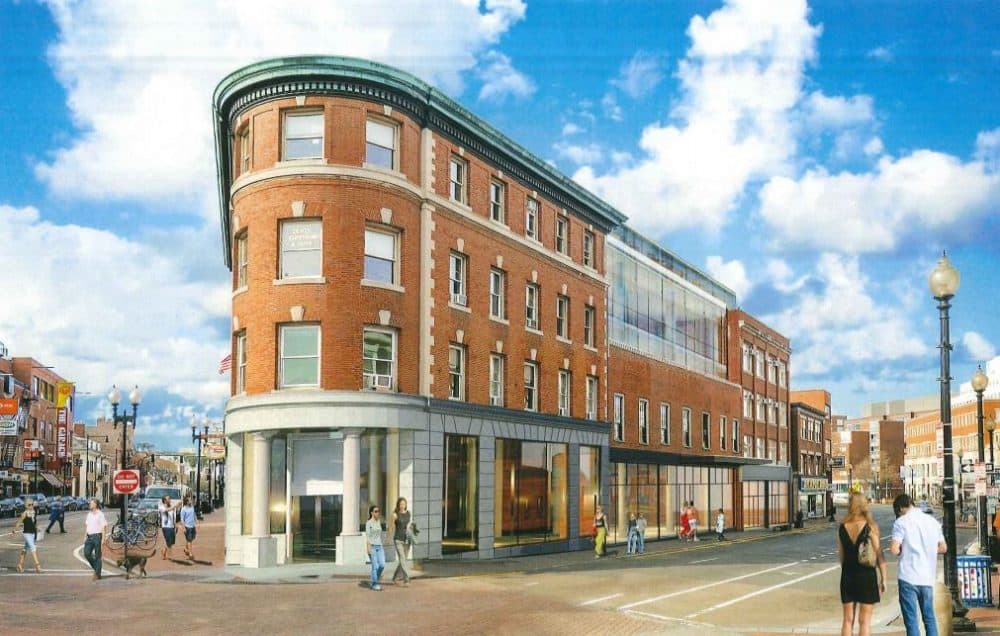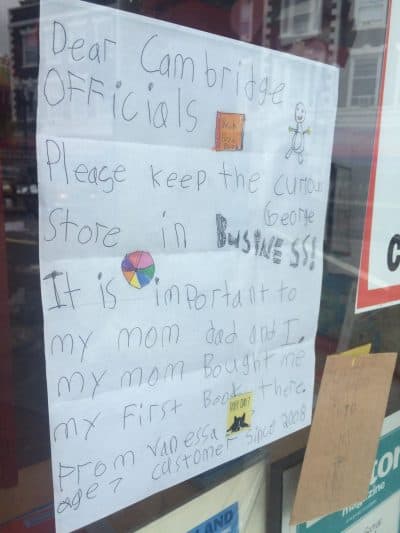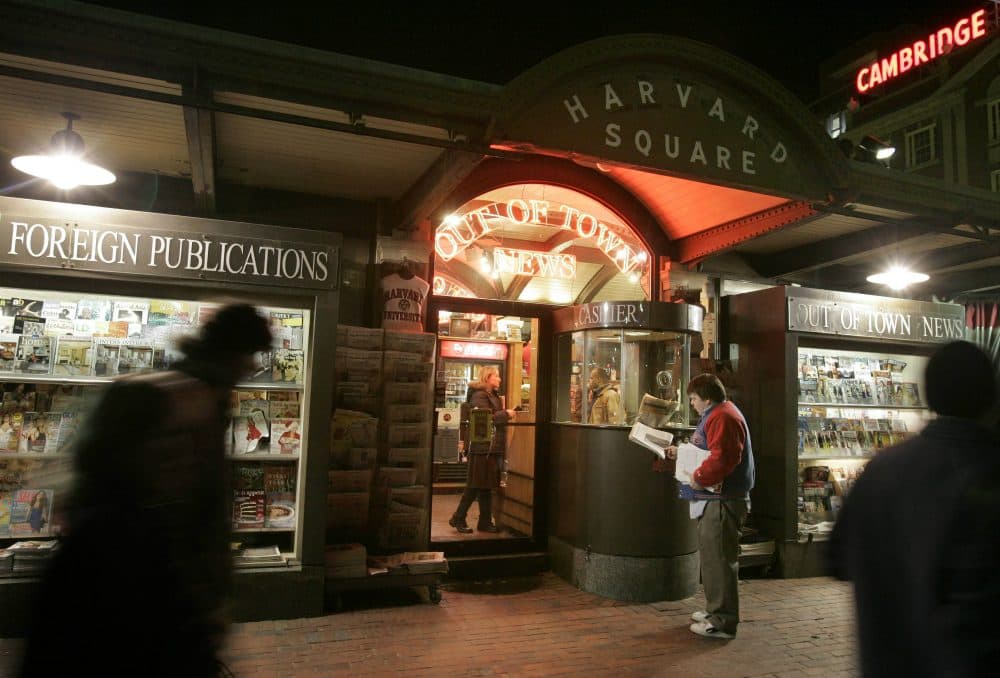Advertisement
Public Squares, Private Money: Considering Harvard Square's Glittering, Empty Future

Is the entire idea of Harvard Square as we know it about to end? Or is the long, slow fade of street-level intellectual foment that once set it apart merely being accelerated?
Whether you consider the Square's heyday long past or not, news that the chopping block has been primed for two iconic institutions in the heart of the Square is still cause for alarm. Out of Town News, an incomparable international newsstand housed by the city of Cambridge next to the MBTA Red Line entrance, faces an uncertain future. So does the Curious George Store, the target of a redevelopment proposal that would oust the shop from the ground floor of one of the Square's most recognizable buildings at 1 JFK St.
Both venues are thriving cultural hubs, valued as one-of-a-kind institutions by many people who believe that they represent what Harvard Square still ought to be: a crossroads of inquiring minds and the resources it takes to sustain them.
...there is a yawning divide between these people who have a hand in reshaping how we occupy our town centers and the much larger mass of citizens who flock to them.
Unfortunately, these landmarks — just a chapter book's toss from each other — do not fit the vision of a small handful of people who have grand designs but little desire to compromise. Their current vision: a Harvard Square in which ground-floor shops with open public access are replaced by empty atria.
Just seven years after negotiating to have Out of Town News operate the long-running stand in the center of the Square, the city has decided that the little cottage it occupies would be better redeveloped to resemble (in aesthetics if not scale) the soulless glass enclosure that now sits at the heart of another exclusive, blandly redeveloped regional gathering place — Boston’s Kenmore Square.

Meanwhile, the firm that purchased the Curious George building has decided to match the city’s plan by replacing the delightful children’s bookstore and other tenants, including the Harvard Square Business Association and the offices of Car Talk's Dewey, Cheatham & Howe, with a glass entryway to an elevator that will lead to a rooftop pavilion. Owners of the Curious George Store have taken to Twitter in the hope that a groundswell of public support might spare them.
All places are subject to change, of course, and Harvard Square has never been an exception. At one time, local landlords managed local tenants. But with rising wealth, changing tastes and global forces, a new class of landlords and investment groups has changed the flavor and feel of the Square.
First came the quasi-chain stores, though they still had enough character to pass muster for most locals. Not yet a national behemoth, Au Bon Pain moved into the Square in 1984. (It moved out earlier this year, after Harvard University announced plans for major changes to its location at the newly renamed Smith Campus Center.) In 1995, Barnes & Noble bought The COOP, but the bookstore remained semi-autonomous. Inevitably, chains like CVS and Starbucks followed, steadily working their way into the center of the Square. In 1997, Abercrombie & Fitch displaced The Tasty, the storied burger joint, sounding a death knell for the old Harvard Square. A branch of Citizens Bank now occupies the corner where, for 81 years beginning in 1916, Harvard students and Cambridge regulars took in the sandwich shop's fluorescent-lit, late night sustenance. This is just one example of a business, wholly unique to Harvard Square, vanishing behind another cookie cutter façade.
Advertisement
But at least the newcomers were points of commerce. That would not be the case with these new proposals, which are designed to remake a public square into a largely private one, in which the well-to-do and no one else have access to the upper floors of a once public building. The rest of us will be fast-tracked through a corridor of high-end eateries, clothing shops and locked front doors before being spat out at the other end. Everything about these non-spaces is designed to move us or block us, but nothing about them says what Harvard Square used to say to any visitor — something all squares should say -- Stay awhile.

Developers attempt to refashion private buildings in public places by playing off of a carefully selected set of false perceptions about progress and necessity. These misrepresentations are effective in leveraging communities into accepting a vision that maximizes what the developers want. They come forward with pretty drawings, power and money, and handfuls of sedative excuses to make their proposals seem palatable. Then they mine a community for resources without leaving much behind. Increasingly, municipal planners seem to mimic this abusive pattern. But we are fast arriving at something of an end-game, and these two proposed passageways to nowhere make it plain.
Is the entire idea of Harvard Square as we know it about to end?
Like the ever-widening chasm between rich and poor in this country, there is a yawning divide between these people who have a hand in reshaping how we occupy our town centers and the much larger mass of citizens who flock to them for relaxation and entertainment because they are not work and not home.
This inequality is laid bare when a city thinks another empty covered signpost of a space is better than one filled with stories sent from every corner of the globe each and every day of the year. It is evident, too, when a developer thinks an elevator to a private rooftop deck makes a better contribution to a town square than a bookstore where anyone, rich or poor, can take their children, grandchildren, nieces and nephews when they want to show them the world without having to make a reservation first.
